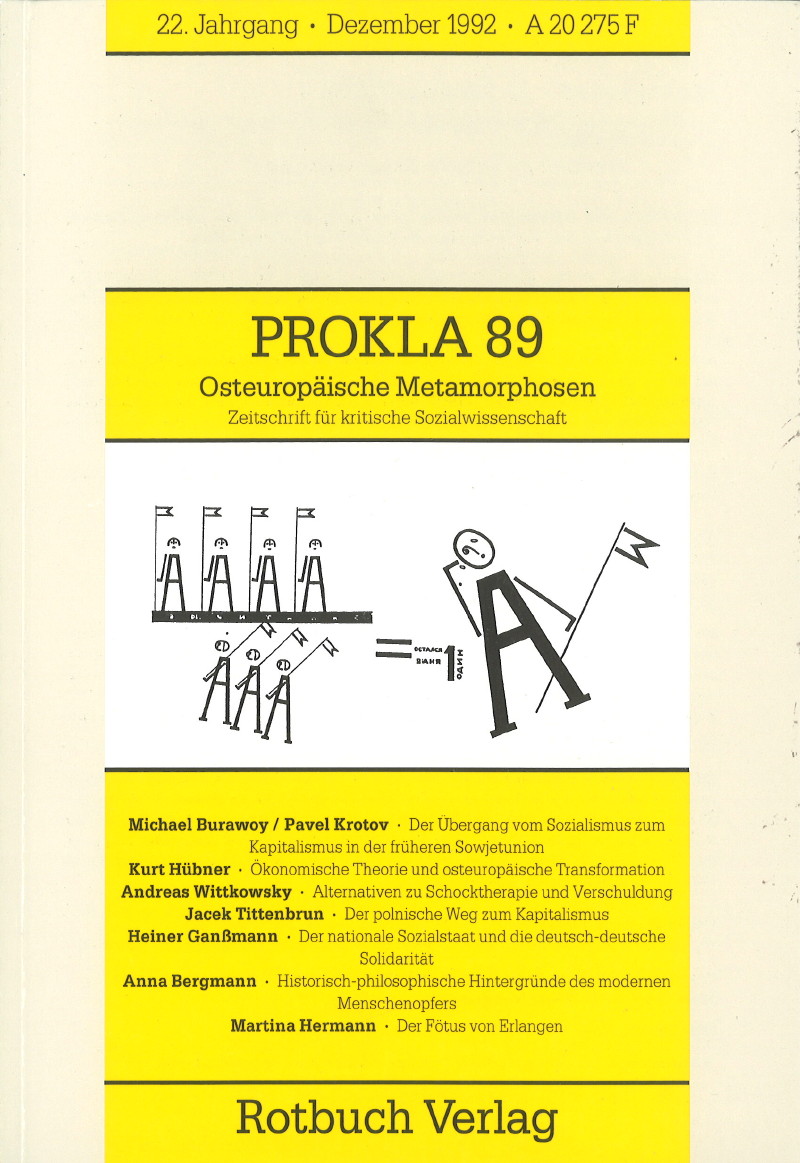Der Übergang vom Sozialismus zum Kapitalismus in der früheren Sowjetunion
Arbeiterkontrolle und Bargaining in der Ökonomie
DOI:
https://doi.org/10.32387/prokla.v22i89.1051Schlagworte:
Sozialismus, Kapitalismus, Sowjetunion, Ökonomie, ArbeitAbstract
Analyses of the transition from state socialism to capitalism typically focus on political impediments and underestimate the economic obstacles to economic transformation. Based on a case study of the Soviel wood industry, we argue that there will be no economic transition so long as enterprises retain two historic features, namely anarchy in production and bargainig in external relations. Far from constituting a revolution, the withering away of the party state has exeggerated the pathologies of the old economic order. Barter has become more important, conglomerates have strengthened their monopoly and workers have greater controll of the shop floor. If there is a movement toward a market economy at all, it is toward a form of merchant capitalism that deepens economic underdevelopment and thwarts the rise of modern bourgeois capitalism.






